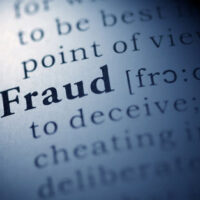Guarding Yourself Against PPP Fraud Allegations

The Government Accounting Office, a watchdog group, recently told the Small Business Administration that there is a significant risk of Paycheck Protection Plan loan fraud. In the minds of many aggressive prosecutors, this significant risk creates a presumption that most PP loans are fraudulent.
When prosecutors sense blood in the water, every small business owner is at risk. Federal prosecutors have nearly unlimited resources. And, given the adverse publicity surrounding the PPP program, many prosecutors are eager to make amends.
Prosecutors do not need much evidence to file charges. But they need considerably more proof to obtain convictions. As a result, a Tampa criminal defense attorney is often able to resolve fraud cases successfully. That resolution could be a plea to a lesser offense, a complete dismissal of charges, or a not-guilty verdict at trial.
Common PPP Fraud Prosecutions
Policymakers billed PPP loans as a lifeline to small businesses struggling with the effects of coronavirus lockdowns. But this first-come, first-served program almost immediately ran out of funds. That explains why fraud is on federal prosecutors’ radar. Some specific PPP fraud cases include:
- Application Fraud: Some PPP loans were fraudulent from the beginning. Payroll embellishment and worker misrepresentation are the most common application frauds. To borrow more money, some employers inflated payroll figures. To fit under the 500-employee ceiling, some bosses misclassified employees as independent contractors.
- Loan Stacking: Borrowers sought PPP funds from private lenders. That arrangement made some borrowers think they could obtain multiple loans and no one would be the wiser. But Big Brother was watching.
- Illegal Funds Use: This category is quite subjective. A requirement like “business-related expense” could mean almost anything. Generally, if the expense came due before February 15, 2020, PPP use is probably okay. That includes ongoing obligations, like rent and payroll.
If prosecutors sense fraud, they normally try to obtain search warrants. These applications must be based on probable cause.
Avoiding Criminal Charges
As a general rule, financial crime prosecutors always look for low-hanging fruit. So, if your business takes some basic precautions, prosecutors typically look elsewhere.
A partnership with an attorney is one such precaution. Some business-owners do not want to “lawyer up” because they are afraid they might look guilty. But the opposite is true. Once business owners tell prosecutors to speak with their lawyers, unless the government finds a smoking gun, prosecutors rarely call.
Retain as many records as possible. Bank statements are good, but they might not be enough. For example, there should be at least one document to back up every assertion you made in a PPP loan application.
Technically, business-owners can pay themselves salaries from borrowed funds. But tread lightly. If your salary is any higher than normal, even if the increase is justified, federal prosecutors might ask questions.
In court, prosecutors must only prove knowing misconduct. That’s different from intentional or malicious.
Count On Experienced Lawyers
Federal prosecutors are looking out for PPP fraud. Are you ready to withstand this scrutiny? For a free consultation with an experienced Tampa fraud lawyer, contact the Matassini Law Firm, P.A. We routinely handle matters in Hillsborough County and nearby jurisdictions.
Resource:
gao.gov/reports/GAO-20-625/
